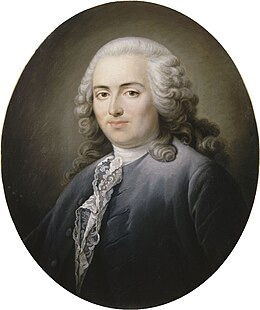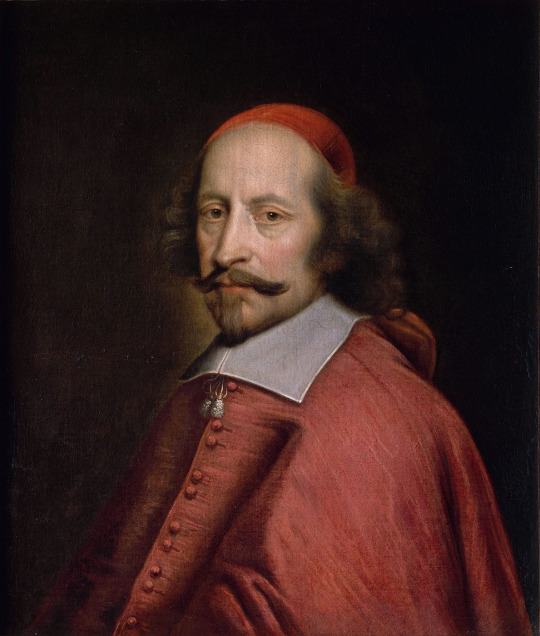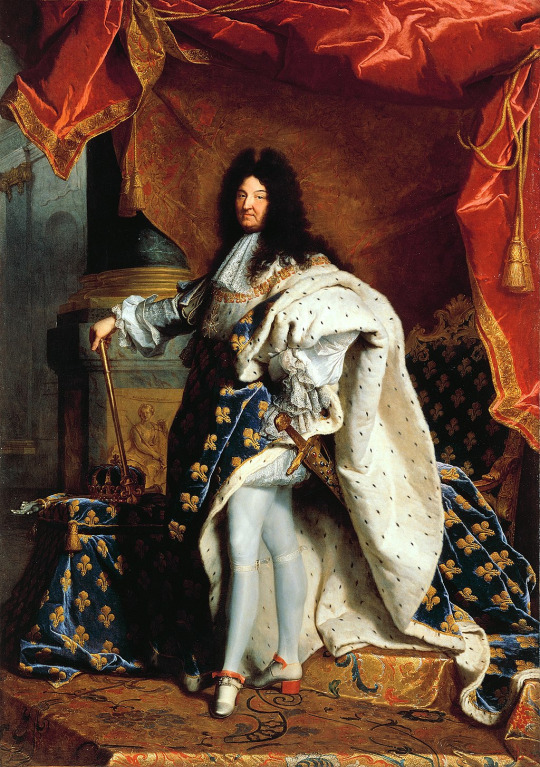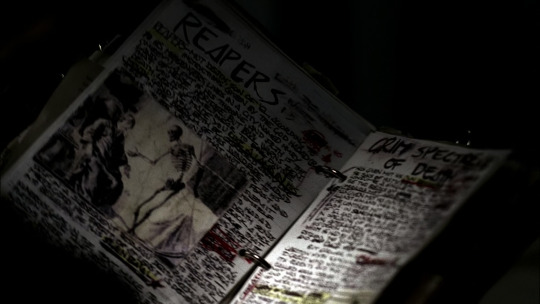#breaks anciens
Explore tagged Tumblr posts
Text

Broken on the wheel.
4 notes
·
View notes
Text
Very specific frev stuff that if I had a nickel for every time it happened I’d have two nickels, which isn’t a lot but it’s weird that it happened twice
Danton boasting about having sex with his wife every night
The word virtue made Danton laugh; he didn’t have a more solid virtue, he said amusingly, than the one which he did every night with his wife. How could a man, to whom every idea of morality was foreign, be the defender of liberty? Robespierre’s notes against the dantonists, written somewhere in March 1794 and published in 1841
Danton in the chamber of the accused: Me a conspirator? I f… my wife everyday. My name is attached to all revolutionary institutions, the revolutionary army, revolutionary committee, Committee of Public Safety, Revolutionary Tribunal. Notes de Topino-Lebrun, juré au Tribunal révolutionnaire de Paris sur le procès de Danton et sur Fouquier-Tinville, written during Danton’s trial in 1794 and published for the first time 1875.
Pétion being forced to share a bed with another revolutionary
We went up to the upper rooms; the sentries were immediately posted at all the doors. The King, the Queen, Madame Elisabeth, the Prince, Madame [Royale], Madame de Tourzel had supper together, Messrs. Maubourg, Barnave, Dumas and I had supper in another apartment; we made our dispatches for the National Assembly, I went to bed at three o'clock in the morning; Barnave came to sleep in the same bed. I was already asleep. We got up at five o'clock. Voyage de Pétion au retour de Varennes, cited in Mémoires inédits de Pétion et Mémoires de Buzot & de Barbaroux (1866) page 196.
This man, whose name must be recorded here, Baptiste Troquart, with the only means of existence provided by difficult work, did not hesitate to brave the dangers, to help proscribed deputies. […] We learned from his own mouth all the precautions, all the tricks that had to be used, all the fatigue that had to be braved for their first needs: the details were touching. We also visited the asylum of the poor (Buzot’s expression). “There, he told us, Buzot and Pétion slept; they occupied my bed; here, on mattresses, rested Barbaroux; there we cooked together; in this old armchair sat Pétion.” Preface to Mémoires sur la Révolution française , par Buzot, député a la Convention nationale, précédés d'un précis de sa vie et de recherches historiques sur les Girondins (1828), page 17-18.
A 34 year old unmarried sister of a prominent revolutionary openly wishing for Robespierre’s death in the spring of 1794
”But since they want your head, take, if necessary, theirs, remember that, without you, Robespierre will very quickly be swallowed up himself. My brother told me the day before his death that he was only good at making speeches, that he understood nothing about government, and that he would lose his head at the first crisis. If he abandons you, his friend, you, the man of August 10, he is only a villain; he must perish. Collect your thoughts for an hour, and mount the rostrum: change the committees; proscribe them if necessary.” Albertine Marat to Danton at the eve of his arrest, anecdote published in Histoire de la Révolution française (1850) by Nicolas Villiaumé, volume 4, page 41. Villiaumé had gotten into contact with Albertine Marat before her death, so it’s most likely she herself who is the origin of this anecdote.
”…I loved [Maximilien] tenderly, I still do… His excesses are the consequence of the domination under which he groans, I am sure of it, but knowing no way to break the yoke he has allowed himself to be placed under, and no longer able to bear the pain and the shame of to see my brother devote his name to general execration, I ardently desire his death as well as mine. Judge of my unhappiness! Charlotte Robespierre in May 1794, according to La Révolution, la Terreur, le Directoire, 1791-1799: d'après les Mémoires de Gaillard, ancien président du Directoire exécutif de Seine-et-Marne, conseiller en cassation (1909), p. 263.
A revolutionary describing someone they actually knew during their childhood as a child in order to justify their recent shenanigans
You (Pétion) have told me (Robespierre) twenty times that Brissot was a child, and that is the common word of the coterie, when it comes to explaining certain rather strong mischievous acts that he is accused of. Réponse de Maximilien Robespierre à Jérôme Pétion (November 1792)
Robespierre: Camille's writings are to be condemned, without a doubt; but it is nevertheless important to distinguish the person from his works. Camille is a spoiled child who had a happy disposition, but who was led astray by bad company. We must crack down on his numbers, which Brissot himself would not have dared to admit, and keep Desmoulins among us. Robespierre at the Jacobins, January 7 1794
Lucile Desmoulins predicting Marie-Antoinette’s fate
O woman, cruel woman, woman unworthy of the sun that shines on you, what, shall not celestial vengeance burst entirely on your head, will you triumph? Go, the day may not be far off when all the evils you cause will fall on you! You will groan then, but it will be too late! We won’t complain! Fear the example of queens who, like you, have done evil! See: some perished in misery, others were sent to the scaffold. This may be the fate that awaits you… Lucile in her diary, summer 1789
If destiny had placed me on the throne, if I was queen, and, having brought pain to my subjects, a just death for my crimes had been prepared for me, I wouldn’t wait for the moment when an unrestrained population came to tear me from my palace to drag me unworthily to the foot of the scaffold, I would prevent their blows, I say, and would like by dying to impose them on the entire universe. I would have a large enclosure prepared in a public place, I would have a stake erected there and barriers surrounding it, and three days before my death I would let the people know my intentions. At the back of the enclosure and opposite the stake I would erect an altar. During these three days I would go to the foot of this altar to pray to the great master of the universe, on the third day I would like all my mourning family to accompany me to the stake, this ceremony would take place at midnight by light torches. Short story by Lucile titled ”What I would do if I were in her place,” first cited in Les Autographes et le goûts des autographes en France et à l’entranger (1865) page 301-302.
A revolutionary courting a girl before contributing to the execution of her older sibling
Robespierre, if you are not a tiger with a human face, if the blood of Camille has not inebriated you to the point that you’ve lost your reason entirely, if you remember our evenings of intimacy, if you remember the carrasses you lavished on little Horace, that you delighted to hold him upon your knee, if you remember that you were to have been my son-in-law, spare an innocent victim. Letter from Annette Duplessis to Robespierre, the day her daughter Lucile Desmoulins gets sentenced to death by the Revolutionary Tribunal
Fouché had shown the most ardent patriotism, the most sacred devotion since the beginning of the revolution. My brother, who believed him sincere, had accorded him his friendship and his esteem; he spoke to me of him as a proven democrat, and introduced him to me in praising him and asking me to give him my esteem. Fouché, after having been introduced to me by my brother, came to see me assiduously, and had those regards and attentions that one has for a person in whom one is particularly interested. Fouché was not handsome, but he had a charming wit and was extremely amiable. He spoke to me of marriage, and I admit that I felt no repugnance for that bond, and that I was well enough disposed to accord my hand to he whom my brother had introduced to me as a pure democrat and his friend. I did not know that Fouché was only a hypocrite, a swindler, a man without convictions, without morals, and capable of doing anything to satisfy his frenzied ambition. He knew so well how to disguise his vile sentiments and his malicious passions in my eyes as in my brother’s, that I was his dupe as well as Maximilien. I responded to his proposition that I wanted to think about it and consult my brother, and I asked him the time to resolve myself. I spoke of it, effectively, to Robespierre, who showed no opposition to my union with Fouché. Mémoires de Charlotte Robespierre sur ses deux frères (1834) page 122-123. Charlotte places the courtship in the midst of the revolution, which can hardly be accurate given the fact Fouché was already married by then, but it does sound likely for it to have happened somewhere between 1788 and 1790, when both of them were unmarried and lived in Arras.
Danton crying over the fate of the girondins
I could not convince myself that among all those who, since May 31, had retained great popularity, there was not one who did not still retain a little humanity, and I went to Danton. He was ill, it only took me two minutes to see that his illness was above all a deep pain and a great dismay at everything that was coming. ”I won't be able to save them (the girondins)”, were the first words out of his mouth, and, as he uttered them, all the strength of this man, who has been compared to an athlete, was defeated, big tears strolled down his face, whose shapes could have been used to represent that of Tartarus. […] When the fate reserved for the twenty-two [girondins] seemed inevitable, Danton already heard, so to speak, his death sentence in theirs. All the strength of this triumphant athlete of democracy succumbed under the feeling of the crimes of democracy and its disorders. He could only talk about the countryside, he was suffocating, he needed to escape from men in order to be able to breathe. Memoirs of the revolution; or, an apology for my conduct, in the public employments which I have held (1795) by Dominique-Joseph Garat, p. 233-234, 241.
Danton was in Arcis in the month of November 1793. One day, when he was walking in his garden with M. Doulet, a third person came towards them, walking with great steps and holding a paper in his hand (it was a journal). As soon as he could make himself heard he cried out: ”Good news! Good news!” and approached them. ”What news?” said Danton. ”Here, read! The girondins have been condemned and executed,” responded the person that had just arrived. ”And you call this good news, you wretch?” cried Danton in his turn, Danton whose eyes immediately got filled with tears. ”The death of the girondins good news? Wretch!” ”Without a doubt,” responded his interlocuteur, ”weren’t they factious? ”Factious,” said Danton. Aren’t we factious? We all deserve death just as much as the girondins, we will all suffer, one after the other, the same fate as them.” Mémoire écrit en 1846 par les deux fils de Danton le conventionnel, pour détruire les accusations de vénalité portées contre leur père, cited in Danton, mémoire sur sa vie privée(1865) by Jean François Eugène Robinet, p. 277-278. Danton’s sons claimed to have obtained this anecdote from the son of the M. Doulet mentioned in it.
#frev#french revolution#frev compilation#georges danton#pétion#albertine marat#charlotte robespierre#lucile desmoulins#robespierre#fouché#a shame albertine and charlotte couldn’t get along you girls obviously had SO MUCH in common 😃
53 notes
·
View notes
Note
In your post on 10 August you correctly pointed out how often the violence under the Ancien Régime gets always overlooked and you mentioned the Beast of Gévaudan, the deliberate repressions by Louis XIV or Louis XVI, the repression of the Flour War. What happened during these events?
Warning: Regarding the case of the Beast of Gévaudan, there are some shocking elements related to the criminal investigation. So, please refrain from reading if you feel uncomfortable with this. Sensitive souls should refrain from reading this part of text. I want to mention that I am not very knowledgeable about the Ancien Régime, so feel free to correct or add to what I say (especially regarding the Flour War).

Dragonnades under the reign of Louis XIV to force Protestants to convert to Catholicism ( The engraving dates from 1686 and is by Engelmann, Les nouveaux missionnaires)
Ah, here we are again, discussing the Ancien Régime. There are many things to say (some of which are positive; we should also fight against the demonization, but I will limit myself to starting with the period under Louis XIV rather than Henri IV).
Louis XIV, what can be said? Well, ironically, if we want to better study the issues that led to the Revolution, it starts with him (in my eyes). I will quickly touch upon his reign and the reasons why he wanted an absolute regime (due to the trauma he experienced as a child during the trials he endured during the Fronde, under the regency of his mother and Cardinal Mazarin). One day, I came across a phrase on a forum that I found revealing about the reigns of Louis XIV, Louis XV, and Louis XVI. It said something like, "Louis XIV creates the debt, Louis XV manages it and passes it on to his successor (Louis XVI), who, due to his character and actions, causes the Revolution to break out." Although reality is more complex, I think this phrase aptly describes the origin of the massive debt of the Kingdom of France.
His wars financially drained the kingdom of France, showing that, in reality, wars of conquest can be more harmful than beneficial due to their expenses, especially if the territories do not bring in revenue (at least when Tsar Peter the Great waged war against the Turks, it was to gain access to the Sea of Azov for long-term commercial purposes). By the end of his reign, the state was financially ruined, all due to excessive conquests and wars that could have been avoided. Let's not even talk about horrific episodes like the Sack of the Palatinate in 1689 and how he alienated foreign powers. Here’s what Voltaire had to say on the subject: "This beautiful country was ravaged under Louis XIV for the second time; but the flames with which Turenne had burned two towns and twenty villages in the Palatinate were mere sparks compared to this final conflagration. Europe was horrified. The officers who carried it out were ashamed to be the instruments of such cruelties" (excerpt from The Age of Louis XIV).
This led to several revolts due to the increasing tax burden, the most notable of which was in Brittany. It is important to note something about Brittany and taxes. In 1491, Duchess Anne of Brittany married Charles VIII. France then annexed the Duchy of Brittany, but in return, Brittany retained a fiscal system specific to the former duchy, and no additional levies could be imposed without the agreement of this former duchy.
Louis XIV violated this fiscal exception and increased taxes as part of his war against Holland. This led to what would be called the Revolt of the Red Bonnets in Brittany, and across France (as there were other zones of insurrection like Grenoble, Bordeaux, Pau, Besançon), it would be known as the Stamp Paper Revolt in 1675, triggered by the ever-growing misery of the population. The revolt in Brittany was the most significant, with castles being attacked and uprisings against their lords. On July 2, the rebels demanded the abolition of seigneurial abuses, among other things, and proclaimed a Peasant Code, which included a series of texts, some of which apparently echoed aspects of the grievance lists of 1789.
The repression in Brittany was brutal. Six thousand men were sent to crush the rebellion. There were hangings, and some were sent to the galleys. The body of one of the leaders, Le Balp, was exhumed to be desecrated. Other leaders were tortured before being executed. The suburb of Saint-Malo was deemed too rebellious.
In October 1675, the city experienced violence, apparently at the hands of Louis XIV’s troops. Residents of certain streets were expelled to the point where the Marquise de Sévigné wrote, "Do you want to know the news from Rennes? An entire large street was driven out and banished, with the threat of death if they were taken in, so that one could see all these miserable people—old men, women who had just given birth, children—wandering in tears as they left the city." On February 5, 1796,
In his absolute control, Louis XIV sought to annihilate any rebellion. Under Louis XIV, there were 40,000 deserters, Protestants, counterfeiters, and salt smugglers condemned to the galleys, which was a horrific ordeal.
For criticizing absolutism, the theologian and tutor of the king’s grandson, Fénelon, fell out of favor. To better eliminate any opposition, a new position of Lieutenant General of Police was created in Paris, tasked with not only surveillance but also reforming justice to extend cases that could be judged directly by the King’s judges. During the inquisitorial process, the investigation was secret (which, as a law student, I admit can have both positive and negative aspects) and confessions were extracted, including through the use of torture (terrifying and horrible).
The Code Noir of 1685 authorized and even justified slavery with the goal of increasing the production of mineral and agricultural wealth.
The Edict of Nantes, which had allowed Protestants to live in peace, was revoked by Louis XIV. This led to the "dragonnades," a method in which "dragons," or royal soldiers, were forcibly quartered in the homes of Protestants considered heretics, using all possible means to force them to convert. I can hardly imagine the brutalities committed in the homes of these victims to obtain so many abjurations from the Protestants so that these soldiers would leave.
When Louis XIV died, he was deeply unpopular. Misery was widespread, and the peasant class could barely survive. In the event of climatic accidents, famine and mortality rates were extremely high, particularly in 1694 and 1709.
It is easy to see that the seeds of the Revolution were already being sown under Louis XIV. In 1694, there was the Red Bonnets uprising, and barely a century later, the Revolution and the overthrow of the monarchy, and the uprising of the slaves. We can clearly see where the first seeds of the Revolution began to germinate.

The fight of Marie-Jeanne Vallet, known as the “Maid of Gévaudan”, against the beast. Sculpture by Philippe Kaeppelin.
Now we come to the case of Louis XV, and one example that struck me the most about the dysfunction of the country is the affair of the Beast of Gévaudan (though there are many others, and more important ones). This remains one of the most mysterious criminal cases that has never been solved. However, this example highlights another dysfunction of the Ancien Régime beyond slavery, famine, religious intolerance, and repression. It is simply the issue of security in the face of the crime that the lower class suffers in certain areas.
France had just come out of the Seven Years’ War (an extremely deadly conflict), relatively defeated by England and financially ruined. The incident took place in the county of Gévaudan (which is in the province of Languedoc). The area included the Margeride, a difficult-to-access region with mountain ranges and marshes. In Gévaudan, life was harsh, predominantly populated by peasants; life was very tough, life expectancy was very short, children started working very early, and the peasant class primarily sought to survive.
But it’s the problem of crime that will be highlighted here (so I won’t go into too much detail about the affair of the Beast of Gévaudan). However, it’s necessary to explain this criminal case to better understand what follows. This case is complex, and the aim is not to explain it fully but rather to show the attitude of King Louis XV’s government, which tends to indicate what could be called willful criminal negligence. Therefore, the mystery of the Beast of Gévaudan is quickly summarized, and if you’re interested in understanding the case from an "investigative" perspective, you won’t find it here (it would take at least two to three pages), especially for suspects and theories explaining this mystery.
It all began in June 1764. A shepherdess living in Langogne was attacked by a beast. She owed her life to the cows that charged to protect their calves. The most striking thing is that the beast completely ignored the cows to focus solely on her. She survived, but it was the beginning of a long series of attacks. The beast was described as a wolf with a black stripe down its back (even today, it’s unclear whether it was a dog or a wolf). This was surprising because the inhabitants were always close to wolves, and no attacks had been recorded.
The beast went on to claim several victims, some of whom were horrifically devoured alive in front of helpless witnesses. Some survivors were scarred for life, and several children died.
Initially, King Louis XV took the matter very seriously: he sent one of his close associates, François Antoine, and enormous resources were employed. However, when the beast was not conspicuously absent, bullets seemed to bounce off it, or it got back up (one of the reasons for speculating that the beast had been trained by a human, as the black stripe could have come from a boar’s hide used as a protective cuirass against pistol bullets). Very questionable means (to put it mildly) will be used such as poisoning the corpses so that the Beast of Gévaudan eats it and poisons itself. But it doesn't work. Then, on September 20, 1765, François Antoine (or one of his aides) killed the beast. Witnesses and survivors of the attacks confirmed it was the Beast of Gévaudan (about twenty of them). However, it had killed on the other side of the river, where it had not been very active. Despite this, Louis XV declared that the affair was over and that the Beast of Gévaudan had been killed. And yet, after a period of calm due to the winter (when herds were less exposed), the attacks resumed with even greater intensity in the spring, with more and more victims. The attacks were concentrated mainly in the Margeride.
This is where we see the indifferent side of the Ancien Régime. For the monarchy, which had been ridiculed by the Beast of Gévaudan, the matter was closed. Officially, the Beast of Gévaudan had been killed, and with censorship in place, there was no mention of other attacks by the beast after 1765. On gravestones, it was now forbidden to say that a victim had been killed by the Beast of Gévaudan. There would be no more assistance, and the inhabitants were left to fend for themselves. One must be cautious, but we can speak of willful criminal negligence: to save face, the monarchy pretended to ignore the deadly attacks and even censored news about the affair. Fortunately, the Marquis d’Apcher continued to organize hunts to kill the beast at his own expense. But his resources were not those of a state and therefore very limited. The attacks officially ended in June 1767. A man named Jean Chastel ended the Beast’s life under strange circumstances (I don’t want to accuse deceased people with little evidence; it’s just that some facts make him seem suspicious, while others exonerate him, especially since in those superstitious times, he was looked down upon for reasons we’d find foolish today. For example, he apparently didn’t attend church much, although when Marie Danty, a 12-year-old girl with whom he was friendly, was devoured alive, he began attending church and had his bullets blessed. He could read and write, which was rare for someone of the lower class, and he was allegedly the son of a healer, whom some called a witch. On the other hand, when Marie Danty died, he swore he would be the one to kill the Beast of Gévaudan, and according to some witnesses, when the beast saw him, it simply sat down, whereas when it was present, it wouldn’t let itself be caught. Moreover, its black stripe had disappeared, although survivors had said it had one. However, I ask that we avoid making accusations against Jean Chastel out of respect for his descendants,while there is a high probability that he is innocent , we cannot make accusations without evidence).
Another frightening aspect of France in this affair is that not all the crimes were committed by the Beast of Gévaudan. It’s clear that at least several murderers committed acts that were blamed on the Beast, especially considering how some victims were killed. In fact, Margeride was notorious for its lack of security, its criminality, and the maréchaussée (mounted police) had only just been established, with many brigands or worse. The last crime attributed to the Beast of Gévaudan was actually committed by a human who killed a woman, Marianne Thomas, in 1777. The woman, in her agony, said it was the Beast. But in reality, it was a man disguised as the Beast, wearing fur, who had committed the crime. So, in addition to famine, it seems that the Ancien Régime either did not want to or failed to ensure that the maréchaussée was effective in protecting the lower class.
Another negative aspect of Louis XV’s regime was the continued religious fanaticism. During the attacks of the Beast of Gévaudan, some believed the beast was the result of divine punishment for the inhabitants’ sins (another theory said that the beast of Gévaudan was suckling a werewolf and that silver bullets were needed to kill it) . There was the infamous case of Calas, where a father was tortured to death because he was Protestant, accused on very doubtful, if not nonexistent, evidence. Then there was the affair of the Chevalier de la Barre, in which a young nobleman was tortured and executed for the crime of blasphemy (desecration of a crucifix) and it seems that it was not sure if it was him who did that, not to mention the sect of the White Penitents in Toulouse, who were a model of intolerance at that time. Additionally, the Church owned at one point 6% of the land in the Kingdom of France and profited from it, while the state coffers did not benefit. Not to mention other legitimate criticisms that could be made against the Church.

Anne Robert Jacques Turgot (French school, Palace of Versailles) (1727-1781)
Finally, here is the Flour War under Louis XVI. Ironically, the minister at the heart of these events was the most competent of Louis XVI’s ministers. Turgot is considered, in a way, a reformer (in fact, part of the nobility hated him for this), but also a liberal. There was much speculation because the monarchy was stockpiling grain. Turgot instead decided to impose the free circulation of grain. However, the poor harvests of 1773 and 1774 led to a significant increase in prices. This further deepened the misery of the peasants, as bread was their staple food. Consequently, riots broke out, with bakeries being looted and grain stocks seized. In response, 25,000 soldiers were deployed, leading to 548 arrests and the execution by hanging of two rioters: a 28-year-old wigmaker and a 16-year-old boy guilty of kicking a bakery door. The execution of these two scapegoats shocked the crowd.
So, my opinion on Turgot is that he was one of Louis XVI’s most competent ministers and the one who, among all his successors, had the people’s best interests at heart. But he was neither a political genius nor an engaged man like the revolutionaries who would take over after the Ancien Régime (at least many of them). I’m going to deliberately provoke by saying that if he was in the most committed political class concerning the Absolute Monarchy, he would likely have been on the far right during the French Revolution (though less conservative than Necker, for sure). But I’m probably being unfair because he died before we could know what he would have done, knowing that he didn’t play a false role as a friend of the people like Necker did, but rather acted more in favor of reforms, unlike the latter.
However, I must point out, in defense of Louis XV and Louis XVI, that absolutism had its limits in the form of the Parliaments, and they had to delegate certain powers to the Parliament. Yet, the Parliament opposed some necessary reforms for the people to ensure that the nobility could maintain its privileges while pretending to be friends of the poor people (we can clearly see where Necker learned this attitude).
P.S: I didn't mention the repression following the Reveillon affair, due to the events of April 26 to April 28, 1789 as it wasn't ask.
Sources: Antoine Resche For the Beast of Gévaudan: YouTuber Lionel Camy, who is very knowledgeable about criminal cases he explains. His video on the Beast of Gévaudan was excellent.But that does not prevent us from seeing historians given that Lionel Camy is more specialized in the analysis and theories of crime. Thierry Aprile
24 notes
·
View notes
Note
ok one final bit of hating from me: the goddamn rules! have a set of established consequences instead of relying on like, vague fear to stop people from breaking them. like you said earlier I'd be so much more willing to like, look at HDG stuff if it didn't come with the prospect of vaguely menacing rulebreaking if I step out of line. I have my personal squicks in the setting but same with a lot of fetish stuff which I just ignore, it's just that fetish stuff typically doesn't have a bizarre system of rules and regulation that makes me think I'm a lawyer in the ancien regime
YEAH like omegaverse or whatever has just as much uncomfortable implication shit to deal but omegaverse doesn't have a GRAND COUNCIL
8 notes
·
View notes
Note
Would you put Louis XIV as overrated?
Oof, that's a tough one.
It's particularly hard to answer because the reign of the Sun King also saw the tenure of some of the most influential chief ministers in French history: Mazarin, and Colbert.

While perhaps not quite as famous as a certain cardinal whose schemes kept getting foiled by the Three Musketeers, these guys were world-historically important.
Mazarin was Richelieu's political heir, and brought his predecessor's policy of using the Thirty Years War as a way to break the back of Hapsburg dominance to a successful conclusion. The Peace of Westphalia not only served as the foundation for modern international relations, but also expanded France's position in Alsace and the Rhineland - especially when Mazarin pulled off an anti-Hapsburg alliance with the new League of the Rhine.

At the same time that France was winning the Franco-Spanish War, which won them a big chunk of territory in the Low Countries around Artois, Luxembourg, and parts of Flanders, and all of the territory north of the Pyrenees Mountains including French Catalonia. It also got Louis XIV the hand of Maria Teresa, which would eventually create the catalyst for the War of Spanish Succession and the War of Austrian Succession...
And while Mazarin was doing all of this, he was also busy crushing the Fronde uprising led by le Grand Condé, which he eventually accomplished in 1653, and creating a formidble system of centralized royal government through the intendants that ended the power of the feudal nobility.

As for Colbert, he was the guy who figured out how to pay for all of this. The single biggest reason why economists need to shut the fuck up when they talk about mercantilism, Colbert was the financial and economic genius of his age. Remember all those canals I'm so crazy about? Colbert built them. Specifically, he was responsible for the Canal des Deux Mers, transforming France's economy by linking the Mediterranean to the Atlantic.

He also turbo-charged France's economic development by restructing public debt to reduce interest payments and cracking down on tax farmers, reforming (although not ultimately solving) the taxation system of the Ancien Régime by using indirect taxes to get around tax evasion by the First and Second Estate, equalizing (but not ending) internal customs duties, and putting the power of the state into supporting French commerce and manufacturing. This included significant tariffs to support domestic producers, direct public investments into lace and silk manufacturing, and the creation of joint-stock corporations like the French East India Company. (This also meant Colbert's direct promotion of the slave trade and the Code Noir in order to generate hugely profitable investments in Haitian sugar and tobacco plantations for import into France and the rest of Europe.)

This makes it a little difficult to separate out what credit belongs to these guys versus the guy who hired them. What I can say is that Louis was directly responsible for Versailles, but also for the revocation of the Edict of Nantes.
#history#historical analysis#cardinal richelieu#cardinal mazarin#jean baptise colbert#louis xiv#versailles#french history#early modern history#economic development#mercantilism#political economy#early modern state-building#early modern period#early modern europe
47 notes
·
View notes
Text
Standing before her original self's Popsicle-stick grave, Annette thinks, okay, I'm the real one. This prospect causing her no special distress or dissonance to contemplate, she realizes: man, this Theseus shit is easy.
Honestly, she hadn't expected to work through it so quickly, and likely wouldn't have if her amnesia hadn't been such a maturity upgrade. But it made sense, didn't it? The other girl had arrived an objective shit-ass, then after requisite formative experiences became a decent, likable person and darling of her hometown. Annette (who felt very satisfied with her new name, even if it was just for private use) had lucked out – had been a stroke of luck for everyone, she figured – because she had just the requisite formative experiences, minus the baggage of pre-Amphibia memories, skipping all the codependency and toxicity and pointless extra human content. She was a reformed kid making good without having ever been a bad one.
Hence the grave. She'd made it out of Popsicle sticks and stuck it in the abandoned playground where they'd left for Amphibia – in the sandbox, specifically, where it might be mistaken for an arts and crafts project by a morbid kindergarten kid. Annette regarded it, boundary-mark for the last unique and unclaimed moment of the other girl's life, and trusted that Marcy wouldn't ask too many questions when she got back. Maybe she'd assume Annette had lost a Wartwooder and was mourning in this way, which she of course hadn't, because if she had she would have killed every human in California and then herself. Some prospects just weren't worth considering. But the other girl deserved something.
Of course, Annette remembered remembering – remembered remembering often, for example, the heady adolescent cocktail that was the other girl's longstanding Waybright animus. Even prior to their escape there had evidently been some tension, judging by things Sasha said in the group therapy that Annette wasn't attending.
The Plantar basement had put a kibosh on that, mostly, but there were several homoerotic sword fights to compensate. And then of course Sasha'd seen her other codependent girlbestie die, reformed herself, started an entirely separate paramilitary organization from her first one like she was fucking Big Boss, and made good for all those ugly years of manipuatlion with an act of love sufficient to break the ancien regime of paradise, except, well –
The redemption had kind of fallen flat for Annette. She'd only caught the tail end of the movie. She could appreciate a worshipful and surprisingly obedient blonde girl with muscles like, Jesus, on account of all the paramilitaries, but Anne's Sasha minus context was just Annette's Cmdr. Waybright, a comrade in the magic frog war from a battlefield she'd never visit again.
6 notes
·
View notes
Text
I have mixed feelings about TotK.
As a game itself, it was so great, it was an experience, it's one of my favorite video game ever.
But as a sequel, I think they could have done so much more.
The reason why I love this game is mostly because it takes the best of BotW and has one of the best story a Zelda game has written.
But when I started to play the game, I noticed a lot of stuff that made me worried. The fast weapon-select-screen is very slow to load, same for the hand powers.
You still have the shrines. Okay I prefer this aesthetic, but it's still a redesign from the previous game. Same for Koroks. There's gotta be a way to upgrade your inventory / hearts / stamina without coping-pasting BotW. The problem with shrines is that you know the result of your efforts before finishing it. And when you know you can cheat the puzzles, it makes it not rewarding at all, no matter if you do it the "intended way" or not.
The dungeons are lazy (level design speaking). It's always like "you have to activate 4 or 5 mechanisms and that's it". In other Zelda games, this would have been the final room, not the whole dungeon. Most of puzzles are skippable, so low satisfaction.
Narration is lazy too. You collect memories. Every cutscene after a boss is the same.
The depths. Why??? Why making a whole new map... with nothing in it??? At first I thought this was gonna be a scary underworld. Like you have all this gloom stuff, and you actually make the scariest shit ever, and you don't. It's just boreland. The only good things to do there is farming, collecting roots of shrines to see their emplacement and that's it. No, I'm not considering the fanservice tunics as a good thing. It's breaking the 4th wall as hell. Nothing rewarding here. Like yeah, I just beat that gloom Gleeok! What do I get? Something an Amiibo could have given me.
The sky is empty too. Maybe there should have been only the land and the sky, without the depths, and this would have been better, since more effort would have been put in the sky islands.
The lore is weird. As much as I love exploring the lore of Zelda games, in this one, I feel like the creators didn't have any idea of how to implement the Zonai here. Like if the Ancien Hero is a Zonai, why are Rauru and Mineru considered the last Zonai? Where is the Sheikah tech? Like even the walls of the Shrine of Resurrection disappears?? We can only theorize that everything Sheikah rose from the earth when needed and went back to the ground once BotW is over, but a simple random line of explanation would be great. Also time span between events??? 100 years from the Calamity is something, 10,000 from the Sheikah gold-age is insanely huge, and it wasn't the first time Ganon woke up. So Zelda travelled like what? 300,000 years ago?? You wouldn't understand the language of someone 300 years ago in your own country, this is just absurd. The ancient Hyrulean text cannot be read, but Zelda can understand Sonia perfectly.
Balancing. The upgrading stuff for your cloths are a copy-paste from the previous game, without balancing in consequence. Lizalfos's tails are rare as hell, and I need 36 of them. In BotW, this wasn't an issue, due to the abundance of Lizalfos and drop rate. This is an issue, in TotK.
Ambiance. This is supposed to be the Cataclysm. Except Yiga or Stal monsters (like BotW), no monster attack you if you don't approach them first. No attack in villages or forts. (Lurelin was already destroyed, and the Bazar was only a mission) Except Gloom hands, no enemy feels threatening. In BotW, the world was dominated by monsters and nothing changed until Link woke up. In this game, monsters are supposed to attack places and make their return, not just lay in Hyrule field waiting to get destroyed.
Other stuff, like if you gotta spend a lot of time in the air, why not having a boost module in your paraglider that you can upgrade, instead of Tulin's power?
Despite all of this rant, I loved this game. I just think they could have done so much more for a sequel, instead of copy-pasting stuffs from BotW. Reminder that this game took 6 years to develop. 7 years for BotW. Except BotW was all original. So yeah, kinda disappointed.
However, I want to say that I love this game with all my heart. The music, the cutscenes, the story, the bosses. It's pure blessing!
It's also bold of Nintendo to not care about the timeline anymore and make the BotW-TotK games separated from the established timeline.
It's hard to rank this game. I enjoyed it more than BotW, but deceptions (and the depth, which was a huge time-consuming chore) makes it so I don't want to replay it soon.
Wind Waker remains unbeatable.
2 notes
·
View notes
Text
Références
[1] Acevedo-Whitehouse K, Bruno R. Potential health risks of mRNA-based vaccine therapy: A hypothesis. Med Hypotheses. 2023 Feb;171:111015. https://doi.org/10.1016/j.mehy.2023.111015.
[2] Valdes Angues R, Perea Bustos Y. SARS-CoV-2 Vaccination and the multi-hit hypothesis of oncogenesis Cureus. 2023 Dec 17;15(12):e50703. https://doi.org/10.7759/cureus.50703.
[3] Aldén M, Olofsson Falla F, Yang D, Barghouth M, Luan C, Rasmussen M, et al. Intracellular reverse transcription of Pfizer BioNTech COVID-19 mRNA vaccine BNT162b2 in vitro in human liver cell line. Curr Issues Mol Biol. 2022 Feb 25;44(3):1115-26. https://doi.org/10.3390/cimb44030073.
[4] Chandramouly G, Zhao J, McDevit S, Rusanov T, Hoang T, Borisonnik N, et al. Polθ reverse transcribes RNA and promotes RNA-templated DNA repair. Sci Adv. 2021 Jun 11;7(24):eabf1771. https://doi.org/10.1126/sciadv.abf1771.
[5] Zhang L, Richards A, Barrasa MI, Hughes SH, Young RA, Jaenisch R.. Reverse-transcribed SARS-CoV-2 RNA can integrate into the genome of cultured human cells and can be expressed in patient-derived tissues. PNAS. 2021 May 25;118(21):e2105968118. https://doi.org/10.1073/pnas.2105968118.
[6] Breda L, Papp TE, Triebwasser MP, Yadegari A, Fedorky MT, Tanaka N, et al. In vivo hematopoietic stem cell modification by mRNA delivery. Science. 2023 Jul 28;381(6656):436-443. https://www.doi.org/10.1126/science.ade6967.
[7] Le Dr McKernan a fait cette découverte en analysant la biopsie du cancer du côlon d’une personne ayant reçu quatre injections d’ARNm de Pfizer. Le député et ancien ministre japonais Kazuhiro Haraguchi a déclaré publiquement fin mai que de la protéine Spike vaccinale avait également été retrouvée dans les cellules cancéreuses de son lymphome malin.
[8] https://x.com/tatiann69922625/status/1931708697379480010. Cette découverte a fait l’objet d’une discussion avec l’épidémiologiste Nicolas Hulscher : https://www.thefocalpoints.com/p/breaking-reverse-transcription-cancer.
[9] Singh N, Singh AB. S2 Subunit of SARS-nCoV-2 interacts with tumor suppressor protein p53 and BRCA: an in silico study. Transl Oncol. 2020 Oct;13(10):100814. https://doi.org/10.1016/j.tranon.2020.100814. Les résultats de cette étude ont été publiés le 30 juin 2020.
[10] Chen X, Zhang T, Su W, Dou Z, Zhao D, Jin X, et al. Mutant p53 in cancer: from molecular mechanism to therapeutic modulation. Cell Death Dis. 2022 Nov 18;13(11):974. https://doi.org/10.1038/s41419-022-05408-1.
[11] Selon Valdes Angues et al., « Les cancers associés aux mutations TP53 incluent le cancer du sein, les sarcomes des tissus osseux et mous, les tumeurs cérébrales et les carcinomes corticosurrénaliens. D’autres cancers moins fréquents incluent la leucémie, le cancer de l’estomac et le cancer colorectal. Les cancers associés à une altération de l’activité de BRCA1 comprennent le cancer du sein, de l’utérus et de l’ovaire chez les femmes, le cancer de la prostate et du sein chez les hommes, et une augmentation modeste du cancer du pancréas chez les hommes et les femmes. Les cancers les plus fréquemment rapportés avec des mutations BRCA2 incluent le pancréas, la prostate chez les hommes et le mélanome ».
[12] Jiang H, Mei YF. SARS-CoV-2 spike impairs DNA damage repair and inhibits v(d)j recombination in vitro. Viruses. 2021;13(10):2056. https://doi.org/10.3390/v13102056. Lien vers l’étude en français : https://www-mdpi-com.translate.goog/1999-4915/13/10/2056?_x_tr_sl=auto&_x_tr_tl=fr&_x_tr_hl=fr&_x_tr_pto=wapp.
[13]Zhang S, El-Deiry WS. SARS-CoV-2 Spike protein inhibits tumor suppressor p53 and creates a vulnerability to cancer. bioRxiv (preprint). 2024 Apr 15. https://doi.org/10.1101/2024.04.12.589252.
[14] Zhang S, El-Deiry WS. Transfected SARS-CoV-2 spike DNA for mammalian cell expression inhibits p53 activation of p21(WAF1), TRAIL Death Receptor DR5 and MDM2 proteins in cancer cells and increases cancer cell viability after chemotherapy exposure. Oncotarget. 2024 May 3;15:275-284. https://doi.org/10.18632/oncotarget.28582.
[15] Seneff S, Nigh G, Kyriakopoulos AM, McCullough PA. Innate immune suppression by SARS-CoV-2 mRNA vaccinations: The role of G-quadruplexes, exosomes, and MicroRNAs. Food Chem Toxicol. 2022 Apr 15;164:113008. https://doi.org/10.1016/j.fct.2022.113008.
[16] Ambati BK, Varshney A, Lundstrom K, Palú G, Uhal BD, Uversky VN, et al. MSH3 homology and potential recombination link to SARS-CoV-2 furin cleavage site. Front Virol. 2022 Feb;2:834808. https://doi.org/10.3389/fviro.2022.834808.
[17] http://genatlas.medecine.univ-paris5.fr/fiche.php?symbol=MSH3.
[18] Başaran N, Szewczyk-Roszczenko O, Roszczenko P, Vassetzky Y, Sjakste N. Genotoxic risks in patients with COVID-19. Infect Genet Evol. 2025 Apr;129:105728. https://doi.org/10.1016/j.meegid.2025.105728.
[19] Kedmi R, Ben-Arie N, Peer D. The systemic toxicity of positively charged lipid nanoparticles and the role of Toll-like receptor 4 in immune activation. Biomaterials. 2010 Sep;31(26):6867-75. https://doi.org/10.1016/j.biomaterials.2010.05.027.
[20] Turni C, Lefringhausen A. Covid-19 vaccines: An Australian review. J. Clin. Exp. Immunol. 2022 Sep 21;7(3):491-508. https://blog.fdik.org/2023-03/covid19-vaccinesan-australian-review.pdf.
[21] Ndeupen S, Qin Z, Jacobsen S, Bouteau A, Estanbouli H, Igyártó BZ.The mRNA-LNP platform’s lipid nanoparticle component used in preclinical vaccine studies is highly inflammatory. iScience. 2021 Dec 17;24(12):103479. https://doi.org/10.1016/j.isci.2021.103479.
[22] Alameh MG, Tombácz I, Bettini E, Lederer K, Sittplangkoon C, Wilmore JR, et al. Lipid nanoparticles enhance the efficacy of mRNA and protein subunit vaccines by inducing robust T follicular helper cell and humoral responses. Immunity. 2021 Dec 14;54(12):2877-2892.e7. https://doi.org/10.1016/j.immuni.2021.11.001.
[23] Theoharides TC. Potential association of mast cell activation by the SARS-CoV-2 spike protein with cancer progression. Med Hypoth. 2022;160:110774. https://doi.org/10.1016/j.mehy.2022.110774.
[24] Sagala G. Apparent cytotoxicity and intrinsic cytotoxicity of lipid nanomaterials contained in a COVID-19 mRNA Vaccine. IJVTPR. 2023 Oct 16;3(1):957-72. https://doi.org/10.56098/ijvtpr.v3i1.84.
[25] Estep BK, Kuhlmann CJ, Osuka S, Suryavanshi GW, Nagaoka-Kamata Y, Samuel CN, et al. Skewed fate and hematopoiesis of CD34+ HSPCs in umbilical cord blood amid the COVID-19 pandemic. iScience. 2022 Dec 22;25(12):105544. https://doi.org/10.1016/j.isci.2022.105544.
[26] Jahankhani K, Ahangari F, Adcock IM, Mortaz E. Possible cancer-causing capacity of COVID-19: Is SARS-CoV-2 an oncogenic agent? Biochimie. 2023 May 23;S0300-9084(23)00136-0. https://doi.org/10.1016/j.biochi.2023.05.014.
[27] Australian Therapeutic Goods Administration (TGA). Nonclinical evaluation report: BNT162b2 [mRNA] COVID-19 vaccine (COMIRNATYTM). 2021 Jan. p. 45. https://www.tga.gov.au/sites/default/files/foi-2389-06.pdf#page=45.
[28] Trougakos IP, Terpos E, Alexopoulos H, Politou M, Paraskevis D, et al. COVID-19 mRNA vaccine-induced adverse effects: unwinding the unknowns. Trends Mol Med. 2022 Oct;28(10):800-802. https://doi.org/10.1016/j.molmed.2022.07.008.
[29] Parry PI, Lefringhausen A, Turni C, Neil CJ, Cosford R, Hudson NJ, Gillespie J. ‘Spikeopathy’: COVID-19 spike protein is pathogenic, from both virus and vaccine mRNA. Biomedicines. 2023 Aug 17;11(8):2287. https://doi.org/10.3390/biomedicines11082287.
[30] Posa A. Spike protein-related proteinopathies: A focus on the neurological side of spikeopathies. Ann Anat. 2025 Apr 18;260:152662. https://doi.org/10.1016/j.aanat.2025.152662.
[31] Petrosin S, Matende N. Elimination/Neutralization of COVID-19 Vaccine-Produced Spike Protein: Scoping Review. Mathews J Nutr Diet. 2024;7(2):1-23. https://doi.org/10.30654/MJND.10034.
[32] Bhattacharjee B, Lu P, Monteiro VS, Tabachnikova A, Wang K, Hooper WB, et al. Immunological and antigenic signatures associated with chronic illnesses after1 COVID-19 vaccination. MedRxiv (preprint). 2025 Feb 25. https://doi.org/10.1101/2025.02.18.25322379.
[33] Patterson BK, Yogendra R, Francisco EB, Guevara-Coto J, Long E, Pise A, et al. Detection of S1 spike protein in CD16+ monocytes up to 245 days in SARS-CoV-2-negative post-COVID-19 vaccine syndrome (PCVS) individuals. Hum Vaccin Immunother. 2025 Dec;21(1):2494934. https://doi.org/10.1080/21645515.2025.2494934.
[34] Alghamdi A, Hussain SD, Wani K, Sabico S, Alnaami AM, Amer OE, et al. Altered circulating cytokine profile among mRNA-vaccinated young adults: A year-long follow-up study. Immun Inflamm Dis. 2025 Apr;13(4):e70194. https://doi.org/10.1002/iid3.70194.
[35] Ota N, Itani M, Aoki T, Sakurai A, Fujisawa T, Okada Y, et al. Expression of SARS-CoV-2 spike protein in cerebral Arteries: Implications for hemorrhagic stroke post-mRNA vaccination. J Clin Neurosci. 2025 Jun;136:111223. https://doi.org/10.1016/j.jocn.2025.111223.
[36] Valdes Angues R, Perea Bustos Y. SARS-CoV-2 Vaccination and the multi-hit hypothesis of oncogenesis Cureus. 2023 Dec 17;15(12):e50703. https://doi.org/10.7759/cureus.50703.
[37] Rubio-Casillas A, Cowley D, Raszek M, Uversky VN, Redwan EM. Review: N1-methyl-pseudouridine (m1Ψ): Friend or foe of cancer? Int J Biol Macromol. 2024 May;267(Pt 1):131427. https://doi.org/10.1016/j.ijbiomac.2024.131427.
[38] Ivanova EN, Shwetar J, Devlin JC, Buus TB, Gray-Gaillard S, Koide A, et al. mRNA COVID-19 vaccine elicits potent adaptive immune response without the acute inflammation of SARS-CoV-2 infection. iScience. 2023 Nov 24;26(12):108572. https://doi.org/10.1016/j.isci.2023.108572.
[39] Seneff S, Nigh G, Kyriakopoulos AM, McCullough PA. Innate immune suppression by SARS-CoV-2 mRNA vaccinations: The role of G-quadruplexes, exosomes, and MicroRNAs. Food Chem Toxicol. 2022 Apr 15;164:113008. https://doi.org/10.1016/j.fct.2022.113008.
[40] Liu J, Wang J, Xu J, Xia H, Wang Y, Zhang C, et al. Comprehensive investigations revealed consistent pathophysiological alterations after vaccination with COVID-19 vaccines. Cell Discov. 2021 Oct 26;7(1):99. https://doi.org/10.1038/s41421-021-00329-3.
[41] Ning W, Xu W, Cong X, Fan H, Gilkeson G, Wu X, et al. COVID-19 mRNA vaccine BNT162b2 induces autoantibodies against type I interferons in a healthy woman. J Autoimmun. 2022 Oct;132:102896. https://doi.org/10.1016/j.jaut.2022.102896.
[42] Qin Z, Bouteau A, Herbst C, Igyártó BZ. Pre-exposure to mRNA-LNP inhibits adaptive immune responses and alters innate immune fitness in an inheritable fashion. PLoS Pathog. 2022 Sep 2;18(9):e1010830. https://doi.org/10.1371/journal.ppat.1010830.
[43] Föhse FK, Geckin B, Zoodsma M, Kilic G, Liu Z, Röring RJ, et al. The BNT162b2 mRNA vaccine against SARS-CoV-2 reprograms both adaptive and innate immune responses. Clin Immunol. 2023 Oct;255:109762. https://doi.org/10.1016/j.clim.2023.109762.
[44] Abramczyk H, Brozek-Pluska B, Beton K. Decoding COVID-19 mRNA vaccine immunometabolism in central nervous system: human brain normal glial and glioma cells by Raman imaging. Biovrix. 2022 Mar 2. https://doi.org/10.1101/2022.03.02.482639.
[45] Sahin U, Muik A, Derhovanessian E, Vogler I, Kranz LM, Vormehr M, et al. COVID-19 vaccine BNT162b1 elicits human antibody and TH1 T cell responses. Nature. 2020 Oct;586(7830):594-599. https://doi.org/10.1038/s41586-020-2814-7.
[46] Mulligan MJ, Lyke KE, Kitchin N, Absalon J, Gurtman A, Lockhart S, et al. Phase I/II study of COVID-19 RNA vaccine BNT162b1 in adults. Nature. 2020 Oct;586(7830):589-593. https://doi.org/10.1038/s41586-020-2639-4.
[47] Raisch J, Darfeuille-Michaud A, Nguyen HT. Role of microRNAs in the immune system, inflammation and cancer. World J Gastroenterol. 2013 May 28;19(20):2985-96. https://doi.org/10.3748/wjg.v19.i20.2985.
[48] Han Z, Estephan RJ, Wu X. MicroRNA regulation of T-cell exhaustion in cutaneous T cell lymphoma. J Invest Dermatol. 2022 Mar;142(3 Pt A):603-612.e7. https://doi.org/10.1016/j.jid.2021.08.447.
[49] Mishra R, Banerjea AC. SARS-CoV-2 spike targets USP33-IRF9 axis via exosomal miR-148a to activate human microglia. Front Immunol. 2021 Apr 14;12:656700. https://doi.org/10.3389/fimmu.2021.656700.
[50] Kyriakopoulos AM, Nigh G, McCullough PA, Seneff S. Mitogen activated protein Kinase (MAPK) activation, p53, and autophagy inhibition characterize the severe acute respiratory syndrome coronavirus 2 (SARS-CoV-2) spike protein induced neurotoxicity. Cureus. 2022 Dec 9;14(12):e32361. https://doi.org/10.7759/cureus.32361.
[51] Barreda D, Santiago C, Rodríguez JR, Rodríguez JF, Casasnovas JM, Mérida I, et al. SARS-CoV-2 spike protein and its receptor binding domain promote a proinflammatory activation profile on human dendritic cells. Cells. 2021 Nov 23;10(12):3279. https://doi.org/10.3390/cells10123279.
[52] Chaudhary JK, Yadav R, Chaudhary PK, Maurya A, Roshan R, Azam F, et al. Host cell and SARS-CoV-2-associated molecular structures and factors as potential therapeutic targets. Cells. 2021 Sep 15;10(9):2427. https://doi.org/10.3390/cells10092427.
[53] Erdoğdu B, Kaplan O, Fidan BB, Çelebier M, Malkan ÜY, Haznedaroglu IC. Metabolomic profiling of leukemic hematopoiesis: effects of BNT162b2 mRNA COVID-19 vaccine administration. Curr Mol Med. 2025 Jun 3. http://dx.doi.org/10.2174/0115665240361878250601074746.
[54] Omo-Lamai S, Wang Y, Patel MN, Essien EO, Shen M, Majumdar A, et al. Lipid nanoparticle-associated inflammation is triggered by sensing of endosomal damage: Engineering endosomal escape without side effects. BioRxiv (preprint). 2024 Apr 18. https://doi.org/10.1101/2024.04.16.589801.
[55] Ko M, Quiñones-Hinojosa A, Rao R. Emerging links between endosomal pH and cancer. Cancer Metastasis Rev. 2020 Jun;39(2):519-534. https://doi.org/10.1007/s10555-020-09870-1.
[56] Eens S, Van Hecke M, Favere K, Tousseyn T, Guns PJ, Roskams T, Heidbuchel H. B-cell lymphoblastic lymphoma following intravenous BNT162b2 mRNA booster in a BALB/c mouse: A case report. Front Oncol. 2023;13:1158124. https://doi.org/10.3389/fonc.2023.1158124. Voir notre article : https://lepointcritique.fr/2023/07/19/une-souris-decede-dun-turbo-cancer-deux-jours-apres-avoir-recu-une-deuxieme-dose-de-vaccin-pfizer/.
[57] Larsson J, Hellstrand E, Hammarström P, Nyström S. SARS-CoV-2 Spike amyloid fibrils specifically and selectively accelerates amyloid fibril formation of human prion protein and the amyloid β peptide. 2023 Sept 1. bioRxiv. https://doi.org/10.1101/2023.09.01.555834.
[58] Francescangeli F, De Angelis ML, Baiocchi M, Rossi R, Biffoni M, Zeuner A. COVID-19–induced modifications in the tumor microenvironment: Do they affect cancer reawakening and metastatic relapse ? Front. Onco l. 2020 Oct 26. https://doi.org/10.3389/fonc.2020.592891.
[59] Theuerkauf SA, Michels A, Riechert V, Maier TJ, Flory E, Cichutek K, et al. Quantitative assays reveal cell fusion at minimal levels of SARS-CoV-2 spike protein and fusion from without. iScience. 2021 Feb 9;24(3):102170. https://doi.org/10.1016/j.isci.2021.102170.
[60] Ou X, Liu Y, Lei X, Li P, Mi D, Ren L, et al. Characterization of spike glycoprotein of SARS-CoV-2 on virus entry and its immune cross-reactivity with SARS-CoV. Nat Commun. 2020 Mar 27;11(1):1620. https://doi.org/10.1038/s41467-020-15562-9.
[61] Nguyen HT, Zhang S, Wang Q, Anang S, Wang J, Ding H, et al. Spike glycoprotein and host cell determinants of SARS-CoV-2 entry and cytopathic effects. J Virol. 2021 Feb 10;95(5): e02304-20https://doi.org/10.1128/JVI.02304-20.
[62] Lazebnik Y. Cell fusion as a link between the SARS-CoV-2 spike protein, COVID-19 complications, and vaccine side effects. Oncotarget. 2021 Dec 7;12 (25):2476-2488. https://doi.org/10.18632/oncotarget.28088.
[63] Tang M, Hu X, Wang Y. Ivermectin, a potential anticancer drug derived from an antiparasitic drug. Pharmacol Res. 2021 Jan;163:105207. https://doi.org/10.1016/j.phrs.2020.105207.
[64] Braga L, Ali H, Secco I, Chiavacci E, Neves G, Goldhill D, et al. Drugs that inhibit TMEM16 proteins block SARS-CoV-2 spike-induced syncytia. Nature. 2021; 594:88–93. https://doi.org/10.1038/s41586-021-03491-6.
[65] Karikó K, Buckstein M, Ni H, Weissman D. Suppression of RNA recognition by Toll-like receptors: the impact of nucleoside modification and the evolutionary origin of RNA. Immunity. 2005 Aug;23(2):165-75. https://doi.org/10.1016/j.immuni.2005.06.008.
[66] Andries O, Mc Cafferty S, De Smedt SC, Weiss R, Sanders NN, Kitada T. N(1)-methylpseudouridine-incorporated mRNA outperforms pseudouridine-incorporated mRNA by providing enhanced protein expression and reduced immunogenicity in mammalian cell lines and mice. J Control Release. 2015 Nov 10;217:337-44. https://doi.org/10.1016/j.jconrel.2015.08.051.
[67] Kauffman KJ, Mir FF, Jhunjhunwala S, et al. Efficacy and immunogenicity of unmodified and pseudouridine-modified mRNA delivered systemically with lipid nanoparticles in vivo. Biomaterials. 2016 Dec;109:78-87. https://doi.org/10.1016/j.biomaterials.2016.09.006.
[68] Kayesh MEH, Kohara M, Tsukiyama-Kohara K. An overview of recent insights into the response of TLR to SARS-CoV-2 infection and the potential of tlr agonists as SARS-CoV-2 vaccine adjuvants. Viruses. 2021 Nov 18;13(11):2302. https://doi.org/10.3390/v13112302.
[69] Mulroney TE, Pöyry T, Yam-Puc JC, Rust M, Harvey RF, Kalmar L, et al. N1-methylpseudouridylation of mRNA causes +1 ribosomal frameshifting. Nature. 2024 Jan;625(7993):189-94. https://doi.org/10.1038/s41586-023-06800-3
[70] Boros LG, Kyriakopoulos AM, Brogna C, Piscopo M, McCullough PA, Seneff S. Long-lasting, biochemically modified mRNA, and its frameshifted recombinant spike proteins in human tissues and circulation after COVID-19 vaccination. Pharmacol Res Perspect. 2024 Jun;12(3):e1218. https://doi.org/10.1002/prp2.1218.
[71] Benitez Fuentes JD, Mohamed Mohamed K, de Luna Aguilar A, Jiménez García C, Guevara-Hoyer K, Fernandez-Arquero M, et al. Evidence of exhausted lymphocytes after the third anti-SARS-CoV-2 vaccine dose in cancer patients. Front Oncol. 2022 Dec 20;12:975980. https://doi.org/10.3389/fonc.2022.975980.
[72] Lacout A, Lesgards JF, Lounnas V, Azalbert X, Perronne C, Zizi M. Dealing with COVID-19 vaccine related antibody-dependent enhancement: A mini review. Arch Microbiol Immunol. 2024 Jun;8(2): 233-8. https://www.doi.org/10.26502/ami.936500170.
[73] Igyártó BZ, Qin Z. The mRNA-LNP vaccines – the good, the bad and the ugly? Front Immunol. 2024 Feb 8;15:1336906. https://www.doi.org/10.3389/fimmu.2024.1336906.
[74] Uversky VN, Redwan EM, Makis W, et al. IgG4 Antibodies induced by repeated vaccination may generate immune tolerance to the SARS-CoV-2 Spike protein. Vaccines. 2023 May 17;11(5):991. https://doi.org/10.3390/vaccines11050991.
[75] Irrgang P, Gerling J, Kocher K, et al. Class switch toward noninflammatory, spike-specific IgG4 antibodies after repeated SARS-CoV-2 mRNA vaccination. Sci Immunol. 2023 Jan 27;8(79):eade2798. https://doi.org/10.1126/sciimmunol.ade2798.
[76] Selva KJ, Ramanathan P, Haycroft ER, Reynaldi A, Cromer D, Tan CW,Preexisting immunity restricts mucosal antibody recognition of SARS-CoV-2 and Fc profiles during breakthrough infections. JCI Insight. 2023 Sep 22;8(18):e172470. https://doi.org/10.1172/jci.insight.172470.
[77] Eythorsson E, Runolfsdottir HL, Ingvarsson RF, Sigurdsson MI, Palsson R. Rate of SARS-CoV-2 reinfection during an omicron wave in Iceland. JAMA Netw Open. 2022 Aug 1;5(8):e2225320. https://doi.org/10.1001/jamanetworkopen.2022.25320.
[78] Shrestha NK, Shrestha P, Burke PC, Nowacki AS, Terpeluk P, Gordon SM. Coronavirus disease 2019 vaccine boosting in previously infected or vaccinated individuals. Clin Infect Dis. 2022 Dec 19;75(12):2169-77. https://doi.org/10.1093/cid/ciac327.
[79] Chemaitelly H, Ayoub HH, Tang P, Coyle P, Yassine HM, Al Thani AA, et al. Long-term COVID-19 booster effectiveness by infection history and clinical vulnerability and immune imprinting: a retrospective population-based cohort study. Lancet Infect Dis. 2023 Jul;23(7):816-27. https://doi.org/10.1016/S1473-3099(23)00058-0.
[80] Nakatani E, Morioka H, Kikuchi T, Fukushima M. Behavioral and health outcomes of mRNA COVID-19 vaccination: A case-control study in Japanese small and medium-sized enterprises. Cureus. 2024 Dec 13;16(12):e75652. https://doi.org/10.7759/cureus.75652.
[81] Feldstein LR, Ruffin J, Wiegand R, Grant L, Babu TM, Briggs-Hagen M, et al. Protection From COVID-19 vaccination and prior SARS-CoV-2 infection among children aged 6 months-4 years, United States, September 2022-April 2023. J Pediatric Infect Dis Soc. 2025 Jan 20;14(1):piae121. https://doi.org/10.1093/jpids/piae121.
[82] Ioannou GN, Berry K, Rajeevan N, Li Y, Yan L, Huang Y, et al. Effectiveness of the 2023-to-2024 XBB.1.5 COVID-19 vaccines over long-term follow-up : A target trial emulation. Ann Intern Med. 2025 Mar;178(3):348-359. https://doi.org/10.7326/ANNALS-24-01015.
[83] Martín Pérez C, Ruiz-Rius S, Ramírez-Morros A, Vidal M, Opi DH, Santamaria P, et al. Post-vaccination IgG4 and IgG2 class switch associates with increased risk of SARS-CoV-2 infections. J Infect. 2025 Apr;90(4):106473. https://doi.org/10.1016/j.jinf.2025.106473.
[84] Shrestha NK, Burke PC, Nowacki AS, Simon JF, Hagen A, Gordon SM. Effectiveness of the coronavirus disease 2019 bivalent vaccine. Open Forum Infect Dis. 2023 Apr 19;10(6):ofad209. https://doi.org/10.1001/10.1093/ofid/ofad209.
[85] Yamamoto K. Adverse effects of COVID-19 vaccines and measures to prevent them. Virol J. 2022 Jun 5;19(1):100. https://doi.org/10.1186/s12985-022-01831-0.
[86] Raszek M, Cowley D , Redwan EM, Uversky VN, Rubio-Casillas A. Exploring the possible link between the spike protein immunoglobulin G4 antibodies and cancer progression. Explor Immunol. 2024;4:267-84. https://doi.org/10.37349/ei.2024.00140.
[87] Cavanna L, Grassi SO, Ruffini L, Michieletti E, Carella E, Palli D, et al. Non-Hodgkin lymphoma developed shortly after mRNA COVID-19 vaccination: report of a case and review of the literature. Medicina (Kaunas). 2023 Jan 12;59(1):157. https://doi.org/10.3390/medicina59010157.
[88] Goldman S, Bron D, Tousseyn T, Vierasu I, Dewispelaere L, Heimann P, et al. Rapid progression of angioimmunoblastic T cell lymphoma following BNT162b2 mRNA vaccine booster shot: a case report. Front Med (Lausanne). 2021 Nov 25;8:798095. https://doi.org/10.3389/fmed.2021.798095.
[89] Sekizawa A, Hashimoto K, Kobayashi S, Kozono S, Kobayashi T, Kawamura Y, et al. Rapid progression of marginal zone B-cell lymphoma after COVID-19 vaccination (BNT162b2): a case report. Front Med (Lausanne). 2022 Aug 1;9:963393. https://doi.org/10.3389/fmed.2022.963393.
[90] McKernan K. Pfizer and Moderna bivalent vaccines contain 20-35% expression vector and are transformation competent in E. coli. 2023. https://anandamide.substack.com/p/pfizer-and-moderna-bivalent-vaccines.
[91] McKernan K (Medicinal Genomics, US), Nitta T (Tokyo Univ, Japan), Buckhaults PJ (University of South Carolina, US), König B et Kirchner JO (MMD Indep Lab, Magdeburg, Germany), Speicher DJ (University of Guelph, Canada) et McKernan K (Medicinal Genomics, US), Speicher DJ (University of Guelph, Canada), Raoult D (IHU Marseille, France), Kämmerer U (Univ. Hospital of Würzburg, Germany), Wang TJ, Kim A et Kim K, (FDA scientists, Centreville High School, US, executed at FDA White Oak Campus). Résultats dans : https://docs.google.com/spreadsheets/d/1gJj3GSrM-UJR9c6Lrcn1k8_buQkQznuUVSKuMR8_2lU/edit?gid=0#gid=0.
[92] Speicher DJ. Full Detailed Report. 2024 Sept 9. https://russellbroadbent.com.au/wp-content/uploads/David-Speicher-Report-2.pdf.
[93] Kämmerer U, Schulz V, Steger K. BioNTech RNA-Based COVID-19 Injections Contain Large Amounts of Residual DNA including an SV40 Promoter/Enhancer Sequence. Public Health Policy Law. 2024 Mar 12. https://publichealthpolicyjournal.com/biontech-rna-based-covid-19-injections-contain-large-amounts-of-residual-dna-including-an-sv40-promoter-enhancer-sequence/.
[94] Wang TJ, Kim A, Kim K. A rapid detection method of replication-competent plasmid DNA from COVID-19 mRNA vaccines for quality control. J High School Sc. 2024;8(4):427-39. https://jhss.scholasticahq.com/article/127890-a-rapid-detection-method-of-replication-competent-plasmid-dna-from-covid-19-mrna-vaccines-for-quality-control.
[95] Peková S. Quantitative Multiplex Real-Time PCR analysis of Moderna (Spikevax) and Pfizer (BNT162b2) vaccines. 2025 Mar 8. https://www.10letters.org/CzechResearch.pdf.
[96] Dean DA, Dean BS, Muller S, Smith LC. Sequence requirements for plasmid nuclear import. Exp Cell Res. 1999 Dec 15;253(2):713-22. https://doi.org/10.1006/excr.1999.4716.
[97] Duncan CN, Bledsoe JR, Grzywacz B, Beckman A, Bonner M, Eichler FS, et al. Hematologic cancer after gene therapy for cerebral adrenoleukodystrophy. N Engl J Med. 2024 Oct 10;391(14):1287-1301. https://doi.org/10.1056/nejmoa2405541. Voir notre article : https://lepointcritique.fr/2024/10/14/nouvelle-preuve-inedite-cancerogenicite-injections-anti-covid-pfizer/.
[98] Hickey TE, Mudunuri U, Hempel HA, Kemp TJ, Roche NV, Talsania K, et al. Proteomic and serologic assessments of responses to mRNA-1273 and BNT162b2 vaccines in human recipient sera. Front Immunol. 2025 Jan 27;15:1502458. https://doi.org/10.3389/fimmu.2024.1502458.
[99] OpenVaet, Syed KA, Guetzkow J, Cobalt J, Kunadhasan J, Jackson B. Pfizer/BioNTech C4591001 Trial – Audit Report – v1 (2024-05-31) Reanalysis of the data and anomalies inventoried. 2024 May 31. https://openvaet.substack.com/p/pfizerbiontech-c4591001-trial-audit?open=false#%C2%A7evidence-the-planned-comparison-of-processes-and-was-never-conducted.
[100] Fajloun Z, Sabatier JM. The unsuspected role of the renin-angiotensin system (RAS): Could its dysregulation be at the root of all non-genetic human diseases? Infect Disord Drug Targets. 2024;24(1):e140923221085. https://doi.org/10.2174/1871526524666230914114524.
[101] Hazan S, Dave S, Barrows B, Borody T. Messenger RNA SARS-CoV-2 vaccines affect the gut microbiome. Am J Gastroenterol. 2022 Oct;117(10S):e162. https://doi.org/10.14309/01.ajg.0000857548.07509.09.
[102] Beaudoin CA, Bartas M, Volná A, Pečinka P, Blundell TL. Are There Hidden Genes in DNA/RNA Vaccines? Front Immunol. 2022 Feb 8;13:801915. https://doi.org/10.3389/fimmu.2022.801915.
[103] Au delà de l’échec des injections anti-COVID, qui ont été homologuées sur la conviction des laboratoires qu’elles pourraient « probablement prévenir de nouvelles vagues pandémiques et ainsi réduire considérablement la mortalité due à la maladie » (p. 14 du rapport d’évaluation du vaccin Comirnaty de Pfizer/BioNTech), la généticienne Alexandra Henrion Caude rapporte qu’en l’espace de vingt ans, aucun des 70 essais cliniques où cette technologie a été testée, sur 17 maladies différentes, n’a franchi le stade de la phase 1-2 (Les Apprentis Sorciers, p. 84). Voire la présentation de son livre au Parlement européen, le 18 avril 2023 : https://www.youtube.com/watch?v=6HH5IyccJNk.
0 notes
Text
Oui. Extrêmement impressionnant, on l'avait vu à Miami il y a deux mois où il a battu tout le monde, dont Djokovic en finale. Draper, aujourd'hui 4e mondial, Fils 14e, Djokovic 6e et ancien n°1 des années. Deux sets perdus sur tout Miami, 4 tie-breaks gagnés, tous sur les pointures susnommées, ce qui veut dire énorme mental.
Normalement votre 1er titre n'est ni un Grand Chelem ni un Masters 1000 (la catégorie sous les GC), mais, comme pour Muller cette année, un 250 ou 500 (lui : Hong-Kong, ATP 500).
J'ai prévenu d'un énorme problème de tirages contre Muller vendredi (lien en commentaires), et expliqué qui fait ça, en l'occurrence à Roland-Garros, et que ce n'est pas la directrice Mauresmo. Le match d'hier a montré qu'il manque peu au n°4 français pour être top 20, et aller loin en Grands Chelems, pour l'instant sur dur et terre battue. Le truqueur de tableaux le savait, et il a eu ce qu'il cherchait, Alexandre n'a même pas pu montrer son niveau au public d'un grand court, et en large diffusion mondiale - et ce n'est pas non plus la faute d'Amélie, selon vous, qui a un tel pouvoir, au-dessus de la directrice ?
Match exceptionnel, sur le court n°14, devant 2 500 spectateurs (capacité maximale). Basile Pesso, Land of Somewhere, 28 mai 2 025 (Fb) Article de Tennis Actu : "Tennis. Roland-Garros - Alexandre Müller : "Jakub Mensik a tout pour être un grand"
#basile pesso#alexandre muller#jakub mensik#tennis#sports#sport#écrivains#roland garros#journalistes#lola le problème est aussi religieux ça fait huit ans que je l'explique
1 note
·
View note
Text
Far Cry 6 : Une évolution en demi-teinte par rapport à Far Cry 5
Sorti en octobre 2021, Far Cry 6 a cherché à renouveler la formule de la célèbre franchise d’Ubisoft en plongeant les joueurs dans l’île fictive de Yara, inspirée de Cuba, sous la dictature d’Antón Castillo (incarné par Giancarlo Esposito). Si le jeu apporte des nouveautés intéressantes et un univers visuellement riche, il souffre aussi de certains défauts qui l’empêchent d’égaler, voire de surpasser, son prédécesseur, Far Cry 5.
---
Les points forts de Far Cry 6
1. Un univers soigné et immersif
Yara est l’un des environnements les plus vivants de la saga. L'île regorge de détails, de paysages variés et de villes animées qui renforcent l’immersion. L’esthétique révolutionnaire et les influences cubaines sont bien exploitées, offrant un cadre plus original que le Montana rural de Far Cry 5.
2. Un antagoniste marquant
Antón Castillo, incarné par Giancarlo Esposito (Breaking Bad), apporte une présence charismatique et menaçante, même si son impact dans l’histoire est parfois limité par des apparitions trop rares.
3. Un gameplay varié et des armes originales
Far Cry 6 introduit les "Supremos" (des gadgets explosifs) et un arsenal déjanté, comme un lance-CD diffusant du reggaeton. L'ajout de véhicules personnalisables et d'un compagnon animalier (dont le chien Chorizo) apporte de la diversité dans l’action.
4. Une liberté accrue
Contrairement à Far Cry 5, qui forçait une structure narrative par régions, Far Cry 6 laisse davantage le choix dans l’ordre des missions et dans la manière d’aborder les combats.
---
Les déceptions de Far Cry 6
1. Un scénario et une narration décevants
Alors que Far Cry 5 proposait une histoire prenante avec une montée en tension progressive et un final marquant, Far Cry 6 peine à captiver. La révolution contre Castillo manque d’impact, et les choix du joueur ont peu d’influence sur l’histoire.
2. Une IA toujours aussi médiocre
L’intelligence artificielle des ennemis est décevante, avec des soldats qui réagissent de manière peu réaliste et un manque de diversité dans leurs comportements, rendant les combats parfois trop faciles ou frustrants.
3. Un système de progression discutable
Ubisoft a introduit un système de niveaux pour les armes et équipements, obligeant les joueurs à farmer pour améliorer leur personnage. Ce mécanisme ralentit le rythme du jeu et le rapproche trop d’un RPG, au détriment de la pure action qui faisait le charme des anciens Far Cry.
4. Un manque de surprise et de renouveau
Si le décor change, Far Cry 6 repose trop sur les bases des opus précédents. La formule Ubisoft (prise d’avant-postes, missions répétitives) est encore trop visible, donnant un sentiment de déjà-vu par rapport à Far Cry 5.
---
Far Cry 6 vs Far Cry 5 : Qui est le meilleur ?
Si Far Cry 6 brille par son ambiance, son antagoniste et son arsenal varié, il reste moins marquant que Far Cry 5, qui offrait une meilleure narration et un antagoniste plus présent. Ceux qui cherchent une expérience plus scénarisée préféreront Far Cry 5, tandis que les amateurs de liberté et d’action trouveront leur bonheur avec Far Cry 6.
Verdict : Un bon jeu d’action, mais une suite qui peine à surpasser son prédécesseur.
Écrit par Gairouard Brian-Thomas
0 notes
Text
Reapers & Grim Spectre of Death Journal Pages
I'm back posting journal page updates! Apologies for the delay; it's been a busy holiday period.
So here are my journal pages for Reapers and Grim Spectre of death

These were a challenge compared to most other journal pages as they are very detailed and it took a few attempts to fit everything in to mirror screen accuracy.
Here is a screencap of these two pages from Season 2, Episode 1 - In My Time of Dying:

I also found a spread of the two pages from the TV set tour over at theTVaddict.com:

This definitely helped recreate the two pages.
The left image I found to be referenced to "A European depiction of Death as a skeleton wielding a scythe" from wikipedia page "Personifications of Death" here
The text on the left reads:
REAPERS
Reapers-Mot 'Death', Son of 'El, according to instructions given by the god Hadad (Ba'al) to his messengers, lives in a city named hmry ('Mirey'), a pit is his throne, and Filth is the land of her heritage. But Ba'al warns them: that you not come near to dive divine Death, lest he made you like a lamb in his mouth, (and) you both be carried away like a kid in the breach of his windpipe. Hadad seems to be urging that Mot come to his feast and submit himself to Hadad. Death sends back a mes- sage that his appetite is that of lions in the wilder- ness, like the longing of dolphins in the sea and he --- threatens to devour Ba'al him- self. In a subsequent passage Death seemingly makes good his threat, or at least is deceived into believing he has slain Ba'al. Numerous gaps in the text make this portion portion of the tale obscure. Then Ba'al/Hada Hadad´s sister the warrior goddess Anat, comes upon Mot severs him, splits him with a blade, winnows him in a sleeve, burns him in a fire, grinds him between mill-stones and throws what remains on the field for the birds to devour. But after seven years death returns, seeking vengeance for the splitting, burning, grinding and winnowing and demanding one of Ba'al brothers to feed upon. A gap in the text is followed by Mot complaining that Ba'al
On the right, the image appears to be a 'death' tarot card image, which I found to be part of a real tarot card deck called "Ancien Tarot de Marseille" from 1977.
The text on the right is:
GRIM SPECTRE OF DEATH
has given Mot his own brothers treat, the the sons of his mother to consumelite - consume. A single combat between the two breaks out scribbling until the Shapsh 'sun' upbraids Mot, informed him that Ba'al has given Mot his own father 'El will turn against him and overturn his throne if he continues. Mot concedes and the conflict ends. In Sanchuniathon also death is son of 'El and counted as a god, as the text says in speaking of 'El/Cronus... and not long afterwards he consecrated after his death another of his sons, called Muth, whom he had by Rhea; this (Muth) the Phoenicians esteem the same as Thanatos ['Death'] and de Pluto. But earlier in a philosophical creation myth Sanchuniathon has referred to great wind which merged which with its parents and that connection was called Eros 'Desire': from its connection Mot was produced, which some say is mud and others a putrescence of watery compound; and out of this came every germ of creation, and the generation of the universe. So there were certain an- animals which had no sensation, and out of them grew intelligent animals, and were called "Zophas- emin", that is "observers of heaven"; and they we- re created formed like the shape of an egg. Also Mot burst forth into light, and sun, and moon, and stars, and the great constellatio ons- The language scribbling here is confusing, a bad summary and possibly corrupt, and the form Mot here is not the same as Muth which appears later. But it may be that the full and coherent account would have made clear
For these two pages you'll need black pen, yellow highlighter, red pen and blue pen to achieve screen accuracy replication.
0 notes
Text


when the unresolved solavellan feelings make you break out the art stuff - 27.11.24
my inquisitor lavellan, during inquisition and 10y after, as she shows up in veilguard
if she looks exactly like my oc yavanna, no she doesn't, yavanna looks like her, because my lavellan was always the blueprint
i actually couldn't remember the name i used in my original playthrough with lavellan but she actually is basically the blueprint so, i did choose yavanna for veilguard.
she was a young earnest dalish mage who had firm "if the chantry has no haters, i am dead" energy.
i think solas' decision haunted her, and she flip flopped a lot in those 10 years whether she would try to convince him otherwise, take him down, or just go with him. deep down a part of her thinks she'd selfishly have joined him in taking down the veil to restore the ancien elven world, but she didn't save the entire of southern thedas just to undo that.
in the end she was able to walk the dinan'shiral with him
#beck blogs#dragon age#dragon age the veilguard#dragon age: the veilguard#dragon age veilguard#da:v#da4#beck plays da4#inquisitor lavellan#solavellan#lavellan#dragon age veilguard spoilers#veilguard spoilers#dragon age the veilguard spoilersm#my art#myblog#artblog#oc: yavanna lavellan#yavanna lavellan
22 notes
·
View notes
Text
LÉGENDES DU JAZZ
RUSSELL PROCOPE, LE CLARINETTISTE OUBLIÉ
‘’Pendant plus d’un demi-siècle, il a fait chanter sa clarinette et son saxophone avec allégresse, reprenant chez Duke Ellington l’héritage de Barney Bigard dont il retrouve le swing léger, l’élégance naturelle et la tradition néo-orléanaise. Au saxophone alto, il s’exprime avec la même grâce, dans un style qui pourrait être un compromis entre la manière de Benny Carter et celle de Johnny Hodges.’’
- André Clergeat
Né le 11 août 1908 à New York, Russell Keith Procope a grandi à San Juan Hill, près de New York, où il avait étudié aux côtés de Benny Carter. Après avoir d’abord étudié le violon, Procope était passé à la clarinette et au saxophone alto.
DÉBUTS DE CARRIÈRE
Procope avait amorcé sa carrière professionnelle en 1926 avec l’orchestre de Billy Freeman. En décembre 1928, à l’âge de vingt ans, Procope avait fait ses débuts sur disque avec les Red Hot Peppers de Jelly Roll Morton, qui se produisaient alors au Rose Dance Land, une école de danse située à l’intersection de la 125e rue et de la 7e Avenue. Évoquant sa collaboration avec Morton, Procope avait précisé: “Jelly was the first’ man who ever fired me. I was a fresh kid, always arguing. Jelly. said, ‘I'm going to run this band or break it up.’ Well,’ I said, ‘looks like you're going to have to break it up.’ ‘O.K., ‘ said Jelly, ‘you're fired.’ That’ taught me you can rub people but you can't rub ‘em too far.”
Par la suite, Procope avait joué avec les légendaires McKinney's Cotton Pickers à Detroit, puis avec les groupes de Benny Carter, Chick Webb (1929–1930), Fletcher Henderson (de 1931 à 1934), Tiny Bradshaw, Teddy Hill (1935-1937), King Oliver et Willie Bryant. Décrivant sa collaboration avec Webb, Procope avait précisé: “Chick had the damnest jazz band you ever heard, as opposed to the commercial band he had when he got Ella Fitzgerald. In those days we didn't have money to buy music so we made head arrangements [that is, arrangements that were extemporized, not written]. It was better for jazz.”
On ignore souvent qu’un peu comme un joueur de baseball, Procope s’était joint à l’orchestre d’Henderson dans le cadre d’un échange avec le groupe de Webb. Dans le cadre de cet échange, Webb avait cédé Procope et le tromboniste Benny Morton à Henderson en retour du saxophoniste Benny Carter et du tromboniste Jimmy Harrison. Commentant la transaction, Procope avait déclaré avec humour: “It was great for me. It doubled my salary.”
Après la dissolution de l’orchestre d’Henderson en 1934, Procope s’était joint au groupe de Benny Carter avec d’autres anciens membres de l’orchestre. Par la suite, Procope avait travaillé durant un certain avec les groupes de Tiny Bradshaw et Willie Bryant avant de se joindre à l’orchestre de Teddy Hill en 1935. À l’époque, la section de trompettes du groupe de Hill avait été composée successivement de Roy Eldridge, Bill Coleman, Frankie Newton et Dizzy Gillespie. Les autres solistes du groupe étaient le tromboniste Dickie Wells et le saxophoniste ténor Chu Berry. C’est dans le cadre de sa collaboration avec le groupe que Procope s’était rendu pour la première fois en Europe en 1937. À l’époque, l’orchestre de Hill était très populaire faisait partie intégrante de la Cotton Club Revue, un spectacle entièrement composé de musiciens de couleur qui avait été présenté notamment au Palladium de Londres.
Après avoir quitté le groupe de Hill en 1938, Procope avait remplacé Pete Brown dans le sextet de John Kirby, avec qui il avait joué exclusivement du saxophone alto jusqu’en 1945 mis à part une brève période durant la Seconde Guerre mondiale. C’est d’ailleurs avec le groupe de Kirby que Procope avait commencé à se faire connaître. Le groupe comprenait de grands noms du jazz de l’époque comme Charlie Shavers à la trompette, Buster Bailey à la clarinette, Billy Kyle au piano et O'Neil Spencer à la batterie. Surnommé "The Biggest Little Band In The World", le groupe combinait la précision à un son plutôt doux et était caractérisé par la qualité de ses solos. Décrivant sa collaboration avec le groupe, Procope avait commenté:
“Rehearsals were the making of the Kirby band. {Le violoniste} Stuff Smith was a big hit at the Onyx Club, but he was going on the road. The Kirby band was hired to fill in until then. By the time Stuff Smith came back, the Kirby Band had gotten so good that Joe Helbock, who owned the Onyx, wanted to keep it together but he didn't know what to with it. He told us; ‘Hang around a couple of months. I'll put you on half salary. Just come in in the afternoons and rehearse; get it all together.’ So for two months we did nothing but sit around and work up arrangements. Then when Stuff Smith left again, we were ready.”
Mobilisé en septembre 1943, Procope avait fait son service militaire dans le 372nd Infantry Regiment band.
En 1946, Procope s’était joint à l’orchestre de Duke Ellington en remplacement de d’Otto Hardick puis de Barney Biggard. Initialement prévu pour un seul soir lors d’un engagement à Worcester au Massachusetts, l’engagement de Procope s’était poursuivi jusqu’à la mort d’Ellington en 1974. Procope explique comment il s’était joint à l’orchestre:
“Duke called me to take Toby Hardwick's place on alto saxophone for one night for a broadcast in Wooster, Mass. I played with Duke once before — in 1927 in a pickup band Duke had put together for .a one‐nighter in Baltimore. In Wooster, Duke said, ‘Since you're here, you might as well go to Providence with us and play a dance.’ Then there was another gig in New England and I played that. I was having a ball after those years in the Army, but after a week, I said, ‘Duke, who's supposed to give me some money?’ I never dreamed he really wanted me in his band. But 10 days later, in Hartford, Duke said, ‘I don't know what Toby Hardwick's going to do. I'd like you to stay.' and he finally hired me.''
Procope s’était de nouveau rendu en Europe avec l’orchestre à l’été 1950. À l’instar des autres membres de la section de saxophones du groupe à l’exception de Johnny Hodges et de Paul Gonsalves, Procope alternerait entre le saxophone et la clarinette. C’est d’ailleurs principalement comme clarinettiste que Procope s’était fait connaître du grand public. En effet, même si Procope excellait au saxophone alto et au saxophone ténor, il était surtout réputé pour la sensualité et la chaleur de ses solos à la clarinette, qui contrastait avec le style beaucoup plus froid et classique de Jimmy Hamilton. Sur la suite en trois parties "Idiom '59", Ellington avait d’ailleurs confié le premier solo à Procope et le second à Hamilton. Dans son autobiographie intitulée Music is My Mistress publiée en 1973, Ellington avait décrit Procope comme ‘’an utterly sober and reliable musician, always to be depended upon." Dans d’autres extraits de ses mémoires, Ellington avait ajouté:
‘’Russell Procope était une sorte d’enfant prodige. Il a commencé par étudier le violon, mais quand il a entendu l’orchestre de Fletcher Anderson, il a été emballé par le jazz ; cet engouement a grandi quand son copain d’école Benny Carter s’est mis au saxophone alto. Également attiré par la clarinette il a été séduit d’abord parle jeu de Buster Bailey au sein de l’orchestre de Fletcher, puis par celui d’Omer Siméon, enfin par celui de Barney Bigard quand il l’a entendu chez King Oliver et chez nous. On comprend pourquoi Procope est un maitre du style Nouvelle Orléans à la clarinette système Albert ! J’ai eu la grande chance d’employer des musiciens qui aimaient tellement leurs prédécesseurs qu’ils les ont imité. Quand Paul Gonsalves est entré dans l’orchestre, il n’a pas même eu besoin de répéter. Il adorait Ben Webster et connaissait par cœur notre répertoire. Idem avec Russell Procope et le jeu de clarinette de Barney Bigard.’’
Avec l’orchestre d’Ellington, Procope s’était particulièrement illustré dans des pièces comme ''Mood Indigo'', une composition de son prédécesseur Barney Biggard. Selon Procope, Ellington avait été impressionné par son solo. Il expliquait: ''After I finished my solo, Duke looked at me and applauded quietly. I never saw Duke applaud men in his own band.''
Comme il l’avait fait pour plusieurs membres de son groupe comme Johnny Hodges et Cootie Williams, Ellington avait composé plusieurs pièces expressément pour Procope, dont ‘'4:30 Blues'', ''Blues to Be There'', ''Second Line'' et ''Swamp Goo.''
En 1956, Procope avait enregistré son premier et seul album comme leader intitulé The Persuasive Sax of Russ Procope. Se produisant exclusivement au saxophone alto sur l’album, Procope était accompagné de Remo Biondi à la guitare rythmique, d’Earl Backus à la guitare solo, de Paul Jordan au piano, de Mel Schmidt à la contrebasse et de Frank Rullo à la batterie.
DERNIÈRES ANNÉES
Même si après la mort d’Ellington en mai 1974, l’orchestre avait poursuivi ses activités sous la direction de son fils Mercer, Procope s’était joint au trio du pianiste Brooks Kerr. Le trio était également composé du légendaire batteur Sonny Greer, qui avait fait partie de l’orchestre d’Ellington de 1919 à 1951. Expliquant son départ du groupe, Procope avait précisé: ''I joined the band because I wanted to play with Duke.'' Procope, qui avait toujours rêvé de faire partie de l’orchestre d’Ellington, avait déjà déclaré qu’il ‘’jouait mentalement’’ avec le groupe depuis son enfance à Harlem et qu’il achetait tous les disques de l’orchestre au moment de leur parution. Il expliquait: “When I eventually Joined Duke almost 20 years later, I had been mentally playing with him all those years. When I was a kid and I had 75 cents, I would buy a Louis Armstrong or a Duke record. I'd go into the store and just. say, ‘Give it to me.’ I wouldn't even play it first.”
Procope avait quatorze ans lorsqu’il avait entendu Ellington jouer pour la première fois au Lincoln Theater de la 125e rue. À l’époque, Ellington dirigeait un petit groupe de six musiciens, les Washingtonians. Mais Procope avait surtout été impressionné par Ellington après l’avoir entendu lors de la diffusion d’un de ses concerts du Cotton Club à la radio. Procope poursuivait: “But. the first time I really paid attention was when Duke broadcast from the Cotton Club — that's when I fell in love with Duke's music. Old Man River’ was big then. Most people played it fast. But Duke played it in long meter. It was different. It was beautiful.’’
Faisant le bilan de sa collaboration avec Ellington, Procope avait ajouté:
“But now that it's over. I don't know that I'd want to go on. Age, you’ know: You can't do what you did when you were younger. Duke did it as long as he could. He died trying to do it. It was rough on him in later years. He used to be terribly tired. His contract had a clause that he'had to have a bed in his dressing room.”
En 1978, Procope avait formé un quintet appelé Ellingtonia qui interprétait un répertoire composé majoritairement de compositions associées à Ellington. Le groupe, qui se produisait régulièrement dans le West End, à Broadway et sur la 113e rue, était composé de George Kelly au saxophone ténor, de Sadik Hakim au piano (un ancien membre des groupes de Charlie Parker et Lester Young), de Peck Morrison à la contrebasse et de Ronnie Cole à la batterie, un ancien collaborateur de Earl Hines et Erroll Garner.
Décrivant sa collaboration avec le groupe, Procope avait précisé:
“We play. Duke's tunes because the fellows in the band Mow them. They even, get‐something close to the Duke's harinceny every now and then. You know; Duke's death was a greittorIoss than people- realize. Other compositors — you could. play their, music. But Duke's music didn't sound’ the seine without, his personal harmony.When I'm playing Duke's music; don'l get into that ‘what the hell’ attitude after the melody hits been play. I respect it because it's Duke and because it's in my head”.
Russell Procope est mort le 21 janvier 1981, probablement des suites d’une crise cardiaque, alors qu’il se promenait à l’intersection de la 9e Avenue et de la 43e rue, à proximité de l’appartement qu’il occupait à Manhattan Plaza. Il était âgé de soixante-douze ans. Procope avait livré sa dernière performance dans un club de la 113e rue dix jours avant sa mort, le 11 janvier. La femme de Procope, Helen, qu’il avait épousée en 1937, étant décédée en septembre 1980, il laissait comme seuls survivants son frère William et sa soeur May Procope Gonzales. Procope était aussi l’oncle de John Procope, l’éditeur du Amsterdam News. Les funérailles de Procope ont été célébrées à St. Peter's Church, à l’intersection de Lexington Avenue et de la 54e rue est.
Même si le son de Procope au début de sa carrière était très influencé par le jeu de Benny Carter, il avait progressivement bâti son propre style qui combinait une sonorité très lyrique et très swing. Même si Procope avait été très influencé par le jazz de La Nouvelle-Orléans, il était rarement mentionné aux côtés des autres grands clarinettistes de l’époque comme Jimmy Noone, Johnny Dodds, Omer Siméon, Barney Bigard, Sidney Bechet et Albert Nicholas. Une des principales causes de cet oubli réside probablement dans le fait que Procope s’était surtout fait connaître comme saxophoniste alto.
Procope, qui aimait s’identifier au style de La Nouvelle-Orléans, avait déclaré un jour: ‘’The New Orleans thing always appealed to me’’. Dans son Autobiographie du Jazz publiée en 2002, Jacques Réda évoquait d’ailleurs le jeu de ‘’Russell Procope qui conserve un savoureux cachet Nouvelle Orléans à la clarinette.’’ Pour sa part, André Clergeat écrivait dans le Dictionnaire du Jazz publié chez Robert Laffont : ‘’Pendant plus d’un demi-siècle, il a fait chanter sa clarinette et son saxophone avec allégresse, reprenant chez Duke Ellington l’héritage de Barney Bigard dont il retrouve le swing léger, l’élégance naturelle et la tradition néo-orléanaise. Au saxophone alto, il s’exprime avec la même grâce, dans un style qui pourrait être un compromis entre la manière de Benny Carter et celle de Johnny Hodges.’’
©-2024, tous droits réservés, Les Productions de l’Imaginaire historique
SOURCES:
‘’Russell Procope.’’ Wikipedia, 2024.
‘’Russell Procope.’’ Fandom, 2024.
WILSON, John S. ‘’A Touch of the Duke From Russell Procope.’’ New York Times, 20 juillet 1979.
WILSON, John S. ‘’Russell Procope, 72, Clarinetist with Ellington 29 years, dead.’’ New York Times, 23 janvier 1981.
1 note
·
View note
Text
TRASHER magazine 100% agression


Le monde du skate et les exploits des skateurs sont fascinants et nous voulions faire une aparté sur ce magazine mythique, cette bible fondée par Kevin Thatcher, Eric Swenson et Fausto Vitello. Elle raconte l'évolution du skate, la vie des skateurs et la culture underground, qui gravite avec la musique punk, ska, métal, le graphisme lowbrow et d'illustrateurs indépendants, les exploits, les vidéos amateurs, les marques, les concours et les compétitions depuis 1981.
Le thème Break the rules va parfaitement avec la culture du skate car déjà tu enfreins la loi quand tu fais du street et que tu ne vas pas au skatepark. La plupart des lieux publiques sont interdits aux planches. Tu fais peur aux mamies, la police te déteste, tu détériores le matériel public rampes, escaliers, tu bois dans la rue, tu vis en meute, tu fumes, tu as des tatouages, tu portes des marques qui revendiquent la liberté...Certains revendiquent le style de vie "straight edge" associé à la musique punk hardcore dont les adhérents ne consomment ni alcool, ni tabac et autres drogues... sont aussi vegans.
C'est une sous culture underground qui tient dans le temps, qui évolue mais qui garde ses racines aux USA.
Bien sûr, chaque skateur a sa personnalité plus ou moins trash, plus ou moins lisse et c'est par la lecture du magazine que tu apprends à mieux les connaître.
Le plus souvent choisis pour leurs performances et leurs sponsors, les interviews restent brutes et dévoilent leurs atouts, leurs figures, leurs spécialités.

"TU DEFIES LA MORT, tu prends en main ta destinée." citation alambiquée mais representative.
Citation du redac chef sur ceux qui portent du Trasher et ne pratique pas.
“On n’envoie pas de produits à Justin Bieber ou Rihanna ou ces putains de clowns. C’est dans la rue que les vraies choses se passent. Du sang ou des croûtes, est-ce qu’on peut faire plus réel que ça ?“. Jake Phelps
Le skate c'est pour les têtes brulées dont les filles. Mais c'est aussi un sport qui tient pas en forme: tu te brises sur le pavé, tu tombes, tu te ramasses si tu aimes faire des figures. Mais c'est fun quand même! Les moment de relâchement sont cools, les rush videos des exploits vaillent la peine. Les skateurs se soutiennent autour d'une bonne pinte en sortant de cessions, comptent leurs bleus.

La police utilisée "Banco" pour le logo fut inspirée d'un album de Bob Marley au style de vie caribéen et au reggae qui correspond bien aux fondateurs et aux styles des publications cools.

Thrasher n'est pas qu'un magazine mais l'équipe de rédaction a su créer son propre contenu, propre au DIY, depuis le 1er numéro du magazine publié à San Francisco en 1981.
Découvre toutes les couvertures du mag depuis 1981 inspirantes: https://www.thrashermagazine.com/magazine/covers-archive/
A l'intérieur de THRASHER Magazine, sont présentés des centaines de pro skateurs célèbres du monde entier tels que Tony Hawk, Bob Burnquist, Bam Margera (Jackass), Steve Caballero (Bones brigade) pour les plus anciens, Stacy Peralta, Tom Sims, Tony Alva, Laura Thornill (70's) ainsi que Pascal Thomas et leurs équipes à travers des publicités et des articles, de la musique punk rock évidemment car la plupart des skateurs jouent de la musique dans des groupes de punk rock, c'est la Californie.
Les jeunes s'approprient dans le monde entier cet univers, cet état d'esprit, connaissent mieux les marques, les figures, la technique, deviennent fan de ... porte le logo signe d'appartenance.
Chaque année, THRASHER délivre son titre de « SKATER OF THE YEAR », sponsorisé par les divers annonceurs du magazine depuis 1990 avec TONY HAWK.
Jusqu’en 2009, fin du format dvd, l'équipe sortait une vhs par an depuis 1988. Le contenu en ligne maintenant est facile, abondant avec le numérique et la diffusion avec les réseaux sociaux même la façon de faire les vidéos sont allégées avec le matos numérique.
Chaque année depuis 2003, THRASHER organise également le « KING OF THE ROAD », une tournée challenge par équipes impliquant quatre équipes composées de proskateurs de différents horizons reçoivent un livre d'épreuves et ont deux semaines pour sillonner le pays et atteindre autant d'objectifs que possible.
THRASHER possède également son propre skatepark indoor : « DOUBLE ROCK » où l'équipe invite des personnalités à venir rider, en concrétisant leurs venues en vidéo. en découvrir plus sur:
thrashermagazine.com
youtube
2 documentaires à voir pour comprendre le lâcher prise que transfigure le skate, une sensation de liberté et une révolution pour les jeunes ainsi qu'1 marque lyonnaise qu'on aime bien Antiz et qui fait des belles planches.

ANTIZ
Créée en 2002 à Lyon par une bande de 4 potes que sont Julian Dykmans, Julien Bachelier, Hugo Liard et Loïc Benoît, ces boards aux graphismes assez sombres et provocateurs sont composées de 7 couches d'érable canadien pressées en Amérique du Nord chez ABC. https://www.antizskateboards.com/
Antiz video de Bruno Detante https://www.instagram.com/brunodetante/
1 note
·
View note
Text
France took possession of the island in the 17th century, naming it Bourbon, after the dynasty that then ruled France. To break with this name, which was too attached to the Ancien Régime, the National Convention decided on 23 March 1793[5] to rename the territory Réunion Island. (
0 notes